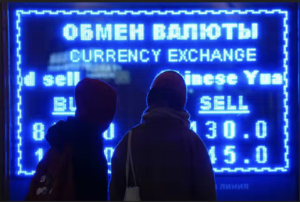 I was invited to testify before the Senate of Canada, Standing Committee on Foreign Affairs, on issues relating to two pieces of legislation that form part of Canada’s economic sanctions laws. The full testimony can be found here (commencing half way through the full session), and a couple of clips of my answers to questions on the effectiveness of economic sanctions, and the lawfulness of secondary sanctions, were posted to YouTube by Senator Woo, and can be found here, and here. I was invited to testify in light of my report Economic Sanctions Under International Law: A Guide for Canadian Policy, published in 2021.
I was invited to testify before the Senate of Canada, Standing Committee on Foreign Affairs, on issues relating to two pieces of legislation that form part of Canada’s economic sanctions laws. The full testimony can be found here (commencing half way through the full session), and a couple of clips of my answers to questions on the effectiveness of economic sanctions, and the lawfulness of secondary sanctions, were posted to YouTube by Senator Woo, and can be found here, and here. I was invited to testify in light of my report Economic Sanctions Under International Law: A Guide for Canadian Policy, published in 2021.
economic sanctions
Why Canada Should Rethink its Approach to Economic Sanctions
(Published in The Conversation, Mar. 6, 2022)
 Western countries have imposed massive sanctions against Russia for its invasion of Ukraine. The West has increasingly relied on economic sanctions to punish or change the policies of foreign governments in the last several decades. The conventional wisdom is that economic sanctions are an effective and peaceful foreign policy tool.
Western countries have imposed massive sanctions against Russia for its invasion of Ukraine. The West has increasingly relied on economic sanctions to punish or change the policies of foreign governments in the last several decades. The conventional wisdom is that economic sanctions are an effective and peaceful foreign policy tool.
Some sanctions regimes, such as the current effort against Russia, may be both effective and lawful. But as I explored in a recent research report, some economic sanctions may violate international law principles, including those the sanctions are intended to enforce. They may therefore undermine the very legal regimes that Canadians like to champion.
The nature of economic sanctions
Many economic sanctions are authorized by the United Nations Security Council or regional organizations. But countries are increasingly imposing sanctions without such legal authority. It’s these so-called unilateral or autonomous sanctions that raise legal questions.
Economic Sanctions Under International Law: A Guide for Canadian Policy
 My report on economic sanctions has been published: “Economic Sanctions Under International Law: A Guide for Canadian Policy,” Rideau Institute and the Human Rights Research and Education Centre, University of Ottawa: Research Report (2021).
My report on economic sanctions has been published: “Economic Sanctions Under International Law: A Guide for Canadian Policy,” Rideau Institute and the Human Rights Research and Education Centre, University of Ottawa: Research Report (2021).
The abstract is below, and a short blog post that discusses the report was also published on the Rideau Institute blog.
Economic sanctions have become an increasingly favored tool of Western states in their international relations over the last several decades, but there have also been growing questions regarding the lawfulness of autonomous sanctions (those not authorized by the U.N. Security Council) generally, and so-called secondary sanctions and targeted sanctions more specifically. This report provides an examination of the nature and operation of both authorized and autonomous economic sanctions and the distinct areas of international law that govern the various forms of economic sanctions, with a view to informing Canadian foreign policy on sanctions.
The report provides an analysis of the different legal bases for possible objections that these different forms of sanction are unlawful, from claims that they may constitute unlawful coercive intervention, or be an unlawful extraterritorial exercise of jurisdiction, to claims that they violate specific principles of human rights law, or international trade and investment law. It also examines whether any such violations could be justified as legitimate countermeasures. The report finds that there is a degree of uncertainty regarding some of these aspects of international law, with differing perspectives between the developed and developing states on these questions.
The report provides a brief review of the Canadian domestic law authority for imposing economic sanctions, and places Canada’s current sanctions regimes within the context of the foregoing legal framework and analysis. Canadian law authorizes broad autonomous sanctions both against states and against individuals and private entities, though it has thus far avoided the use of secondary sanctions. The report ends with the suggestion that Canadian policy makers should take the unsettled state of the law as a cause for caution. Moreover, they should be mindful of Canada’s role in helping to shape the evolving customary international law regime, and whether the use of some economic sanctions may be inconsistent with its support for human rights, respect for sovereignty, and the international rule of law.
